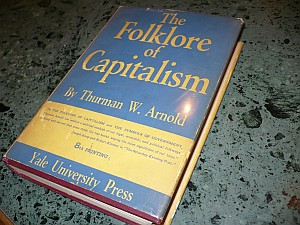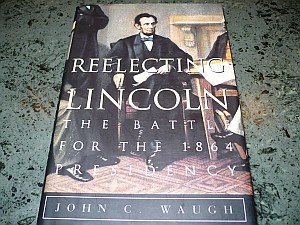Dear Readers,
After the slew of e-mail responses (no, really, 1 comment definitely counts as a ‘slew’) I’m changing the topic of conversation to something a little more controversial: politics. Fear not – this blog takes no sides. Or rather, I’m so amused by the ridiculous rhetoric of our candidates and this media circus of an election, that there’s really no time to take sides. Let’s start with the fact that these guys both sound like robots – boring, boring robots programmed to be as inoffensive as possible. See, there’s no real way to be sure what either candidate actually thinks – they’re both paralyzed by the desire to get elected, which restricts them to platitudes, tautologies, and catch phrases. These, of course, are decided upon by handlers, advisors, and strategists, a horde of game-players that use each candidate as a loudspeaker for their calculated nonsense.
Let’s take a great platitude: “Absolutely, I believe in America.” My goodness! Do you really? What exactly would it mean to not believe in America? America is not Bigfoot, or a fairy, last I checked. The tautologies are slightly longer, disguised by length to mask their utter meaninglessness: “Certainly, the economy falls and rises, but American workers continue working, and markets will be controlled by factors that we are responsible for. As Americans, and as people, we participate in this country, and as president I’ll work for the country, to make sure that justice is justice.” How illuminating! I was under the impression that the economy only rose, Americans were not by definition people, and the president worked for General Electric.
And don’t even get me started on the catch phrases! Holy-moly, if I hear Obama mention McCain’s statement about the “fundamentals of the economy,” or McCain bring up “earmarks,” I’m going to, well, actually, I’m going to do what we should all do. Head down to O’Gara and Wilson, where numerous books can help you free yourself from the haze that inevitably envelops all who pay attention to political discourse.
Take the economy, for example. If Nobel Prize winning economists disagree about what’s going on and how to address, why do we listen to the same tired lines from these Senators who are drastically unqualified to explain such issues? Truth is, no one really knows what’s going on. And that’s why I recommend this week’s Favorite, The Folklore of Capitalism, written by Thurman W. Arnold in 1937.

Arnold was a trust-busting lawyer who also fought for taxation by private organization. But it’s his phenomenal sense of humor and disdain for empty discourse that blows me away. Take the subheading of Chapter Three, “in which it is explained how the great sciences of law and economics and the little imaginary people (!!) who are supposed to be guided by these sciences affect the daily lives of those who make, distribute, and consume our goods.” (My italics and exclamation points of joy.) Or this eerily relevant heading on corporations: “In which is explained the doctrine of vicarious atonement through which the debts of an industrial corporation are forgiven.” Best of all, check out his analysis of the word ‘justice’: “Since justice is a nice word, we refuse to apply it to people who are struggling for things we do not like. The pacifist will refuse to admit that any war can be a war for justice. The born fighter will say that men who refuse to fight for justice do not really care for justice at all… these arguments never get anywhere in persuading the other side. However, they perform a real function in bolstering up the morale of the side on which they are used. The trick is to find a pair of polar words, in which the nice word justifies your own position and the bad word is applied to the other fellow.” Thurman W. Arnold for president, I say! Vote Arnold! $7.50 for this vintage book chosen by H.L. Mencken as one of the three best books he read in 1936.
Hopefully all this has started you thinking about elections in general. Perhaps the last “wartime” election, or current candidates constant references to the war on terror have you bristling at the way politicians use fear and national turmoil to further their own political ends. Rest assured, little has changed. In this weeks Affordable and Interesting selection, John C. Waugh narrates the greatest wartime election of all in 1864.

Reelecting Lincoln: The Battle For the 1864 Presidency is filled with illuminating anecdotes and quotes. Take this effort at bipartisan dialogue: “Now that the election is over, may not all, having a common interest, re-unite in a common effort, to save our common country? For my own part I have striven, and shall strive to avoid placing any obstacle in the way. So long as I have been here I have not willingly planted a thorn in any man’s bosom…May I ask those who have not differed with me, to join with me, in this same spirit towards those who have?” Nice, Abe. You decide the proportions, dear blog reader: tautologies ( %), platitudes ( %), catch-phrases ( %). Not much has changed, it seems, except Lincoln did it all a good bit more eloquently. For a mere $4.50, you can check it out yourself.
So let’s go back even further. This week’s Collectible is a leather bound Easton Press edition of The Prince, by Machiavelli.

Leather bound, silk page marker, and gilt decorations, all for $35. Let’s see what he has to say about how princes (and presidents) should conduct themselves: “Every one understands how praiseworthy it is in a Prince to keep faith, and to live uprightly and not craftily. Nevertheless, we see from what has taken place in our own days that Princes who have set little store by their word, but have known how to overreach men by their cunning, have accomplished great things, and in the end got the better of those who trusted to honest dealing. Be it known, then, that there are two ways of contending, one in accordance with the laws, the other by force; the first of which is proper to men, the second to beasts. But since the first method is often ineffectual, it becomes necessary to resort to the second.”
Looks like politicians may have been doing their reading after all. From O’Gara and Wilson, this is Alan, over and out.




No comments:
Post a Comment